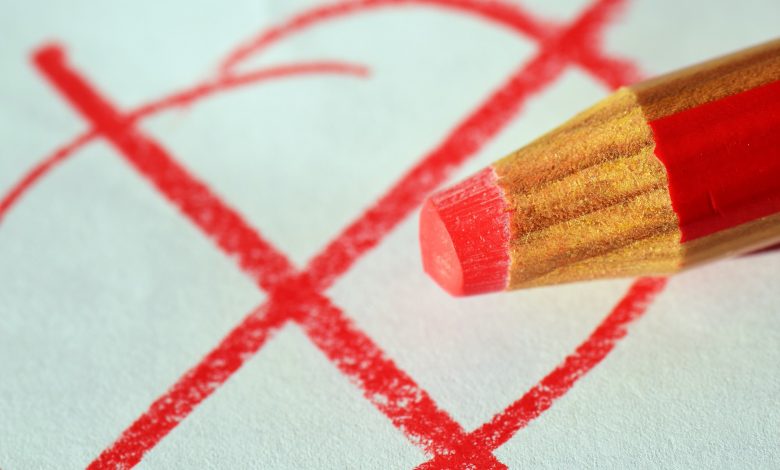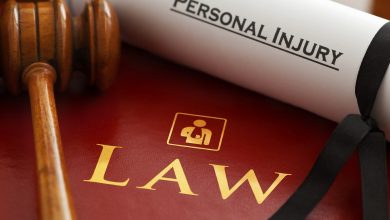Can You Vote If You Have a Felony?

The law protects every felon’s rights from the moment that the police arrest them. This includes their rights to remain silent and access a lawyer. In fact, the law protects criminal suspects even before they come into contact with the police. After all, the government can’t arrest someone or search their belongings without a court-issued warrant. Defendants also retain their due process rights throughout the entire case. However, what happens to your rights after you lose in court? Some of them, including your ability to own a gun and travel, become restricted. You may be able to vote if you have a felony, but there is no definite answer.
Every state has its own laws and requirements. In some locations, felons never lose their right to vote in the first place. Other jurisdictions, meanwhile, may be more lenient. Equally as important are crime types and finances. To put it another way, several factors that are specific to your court case will determine whether or not you can vote if you have a felony. In this article, we outline what you need to know about your ballot access and how to restore it.
State Laws and Exceptions
Almost all fifty states allow felons to regain their voting rights at a certain point. In eighteen of them, including New Jersey, Illinois, Colorado, Nevada, and Oregon, felons may vote immediately after they get out of prison. California, Connecticut, and New York require convicts to conclude parole obligations, as well. To clarify, here is an example: a felon was sentenced to ten years in prison. However, after demonstrating good behavior, the criminal got out of jail two years early and served the rest of their sentence on parole. In Illinois (and seventeen other states), the felon can vote once they are released from prison. In California, Connecticut, and New York, they would have to wait until their full ten-year sentence is complete before regaining their voting rights, including the two-year parole period.
Nineteen other states do not enable felons to vote until they fulfill their probationary sentences and fines, including drug rehabilitation programs and violation fees. Texas, Minnesota, New Mexico, and Georgia are amongst those states. To illustrate, let’s assume that the felon in our earlier example was arrested on illegal drug distribution charges. The court required them to attend rehabilitation classes and pay fines after their ten-year prison and parole sentence is over. If they lived in Texas or another relatively strict state, the felon must wait until they fulfill all of these obligations. After that, they may vote.
Exceptions: Strict and Lenient States
Iowa has the strictest voting laws. Any convicted felon is permanently banned from voting in the Buckeye State, regardless of the type of offense that they committed. For example, Iowa doesn’t give nonviolent felons a chance to restore their voting rights, even after they complete the probation/parol requirements and pay their fines. Convicts may only regain access to the ballot box through a governor’s pardon. In Arizona, a criminal will permanently lose their right to vote once they are convicted of a second felony. While the first offense is forgivable, the second one certainly isn’t.
Maine and Vermont, on the other hand, have the most lenient voting laws in the nation. In fact, felons don’t lose their right to vote to begin with. Those two states allow convicts to vote while they are in prison. Nonetheless, apart from those four exceptions, most states will either restore a felon’s right to vote after their full sentence is completed or when they fulfill other obligations (such as monetary fines), as well.

Serious Crimes and Permanent Loss of Voting Rights
As mentioned, most states do not permanently bar felons from voting. The restoration of ballot access, whether it comes after release or the completion of probationary terms, applies to all felony types. Nonetheless, in six states, serious crimes would ban convicts from voting for the rest of their lives. This permanent punishment is mostly reserved for high-level offenses. To clarify, here are the type of crimes that would permanently cost felons their voting rights in each of the said six states:
- Alabama: Murder, rape, incest, and treason
- Delaware: Murder, manslaughter, sexual crimes, and felonies related to public offices (such as bribery and abuse of power)
- Kentucky: Any violent felony (non-violent offenders regain their right to vote after they finish their sentence)
- Mississippi: Murder, rape, theft, arson, armed robbery, larceny, carjacking, embezzlement, perjury, and other related crimes
- Tennessee: Murder, rape, treason, and voter fraud
- Wyoming: Violent offenders
Convicted felons in those six states should keep a couple of things in mind. Firstly, if an offender loses their right to vote, there are ways for them to regain it. In some cases, they may request a pardon or the restoration of civil rights from the governor. Other states, meanwhile, may require felons to contact the legislature, as opposed to the governor. Secondly, each jurisdictions’ circumstances are unique. In Wyoming, for example, nonviolent offenders that received their sentence before 2010 will still have to request a pardon. Nonviolent felons who were charged after January 1, 2010 will automatically regain their voting rights when they finish their sentence.
Regaining Your Rights
Just because you permanently lost your ballot access doesn’t mean that you can never vote if you have a felony. However, legal professionals call it a “permanent” loss of rights because it’s nearly impossible for convicts to reverse that. Obtaining a governor’s pardon is very difficult. Moreover, the process doesn’t have a specific or defined timeline. Many years (and governors) may pass before anyone will consider your request. In addition, getting approval for a pardon in the first place is its own mountain to climb.
Alternatively, after permanently losing their voting rights, felons may get them back through contacting their state’s legislature. Yet in order to succeed, the majority of your state house and senate members must vote in favor of restoring your ballot access. This option is even more difficult than obtaining a pardon and is only available in certain jurisdictions. Nonetheless, we will look at other relatively realistic methods in this article.
Financial Obligations and Parole
Recently, in May of 2020, a federal court rolled back voting restrictions on Florida felons. More specifically, the judge determined that convicts who can’t afford to pay their court-related bills may still regain their right to vote. To put it another way, poor criminals shouldn’t be barred from the ballot box just because they haven’t paid off their fines and financial penalties. While the court’s ruling mainly applies to Florida, it could pave the way for similar decisions in other states.
Public Defendants
First of all, the recent court decision allows felons who relied on a public defendant to retain their right to vote. Keep in mind that courts appoint a public attorney when a defendant can’t afford to hire their own lawyer. This has been the case since the early 1900s. Public defendants ensure that poor suspects have a level playing field to others by giving them access to free legal representation. In light of this, assuming that you are a Floridian felon and a public defendant represented you, the recent court ruling allows you to vote if you have a felony. Since the court ruling is relatively new, we don’t know whether or not other states will follow suit.
Civil Liens
If a defendant loses a court case, they may owe the prosecutor or the victim money for certain damages or fees. In this situation, the court initially requires the defendant to pay the victim in the form of a ‘restitution.’ However, what happens when the convict’s prison sentence or probationary period ends before they pay the restitution amount? The courts will issue a civil lien. This makes it difficult for convicted criminals to buy a car or take out a mortgage. In fact, a judge may even entitle the victim to the defendants’ property, up to the amount that satisfies the civil lien.
The federal ruling in Florida, nevertheless, prevents a civil lien from turning into an obstacle to voting. To put it another way, if you have a civil lien against you, you may still cast a ballot in Florida. Keep in mind, though, that criminal – rather than civil – damages and monetary punishments might prevent a convict from voting. In other words, you can’t vote if you have a felony until a restitution fee turns into a civil lien.
Court Fees
In addition to financial penalties and compensating the victim, convicted felons have to pay court fees. These fines exist in all legal cases, whether civil or criminal. Usually, the prosecutor pays the court fees, and if the court rules in their favor, the defendant must compensate them for this expense. The recent court decision in Florida stated that court fines shouldn’t bar a convict from voting. In other words, while other types of financial obligations can’t prevent felons from casting a ballot, court fees don’t. The judge who made the ruling called them a “tax in any other name.”

Regaining Your Rights on the Federal Level
As we previously mentioned, federal laws don’t address voting rights. Nonetheless, you may be able to vote if you have a felony through expungement or restoration. Both of those are granted on the federal level.
Expungement
This method allows you to regain all of your civil rights, alongside access to the ballot box. Expungement enables felons to purchase a firearm, own a car, and travel freely. In short, an expungement completely removes the felony offense from your record. Just as importantly, this option is available on the federal level. That is to say, you can use if you live in a state that permanently banned you from voting. Above all else, an expungement also eliminates all the barriers that may prevent you from obtaining employment, housing, and other needs.
First of all, multi-time felons are not eligible for an expungement. Otherwise, you can apply for one when you finish your sentence and pay off any fines. Before requesting an expungement, however, felons must wait for three years to pass after the end of their sentence. Convicts apply for expungements through the courts. Judges will favor felons who demonstrate that they learned from their experience and became productive and law abiding citizens. Moreover, they review each application’s information with the original law enforcement authority that arrested the convict.
Restoration
The restoration of civil rights is another option that’s available on the federal level and in some states. The restoration process is similar to expungements. Once a felon is successful, they regain the rights to vote, own a firearm, and more. Nevertheless, restoration doesn’t remove the felony from your background. The state and federal governments have their own restoration procedures. Because of this, convicts should follow the relevant agency’s guidelines. Since several states (such as California) don’t have a way for you to restore your legal rights, restoration via the federal government may be the only way to regain your right to vote if you have a felony.
Moving to Another State
Let’s assume that a felon lives in Iowa, which permanently bars convicts from voting. What happens if they move to another state, such as California or Texas? That is to say, since these states have more lenient voting restrictions on felons, would the felon be allowed to vote in their new location? For the most part, that depends on two factors. First of all is the state’s laws on felonies and voting. In California, for instance, the former Iowa resident may vote once they finish their full sentence and parole requirements. Colorado and Oregon, on the other hand, will allow the ex-con to vote because they completed their time behind bars.
The state’s overall voting system is equally as important. Just because someone moved from one state to another, regardless of their criminal history, doesn’t automatically give them the right to vote in their new location. Instead, voters must wait until they officially become residents of the said state. At times, this may take more than five years. Up until that point, voters can only vote through their old state’s laws. When it comes to felons, this may be longer than their probationary period or early release on parole. Therefore, making a move to a less strict state may not shorten a convict’s wait time until they’re able to vote again.

Your Right to Vote If You Have a Felony
To summarize, you can vote if you have a felony in almost all fifty states. Yet certain rules and provisions will apply. In some cases, felons can vote right after they get released from prison, whether its an early release or not. Other jurisdictions require convicts to wait until their original sentence is concluded (including parole and early release periods). Stricter states mandate that felons pay off all of their fines and fulfill probationary obligations. After that, they regain access to the ballot box.
Amongst the exception, of course, are laws that allow felons to vote while they’re in prison and those that permanently ban convicts from the ballot box. However, in those instances, felons may still regain their voting rights from the federal government (via restoration or expungement). Although a governor’s pardon is still an option, it is certainly more difficult than the alternatives. Moving to a new state, meanwhile, is usually not a solution. After all, you are still bound to your old state’s laws for several years.
At the end of the day, you certainly can vote if you have a felony. It is just as important as your other rights, including access to a lawyer and due process protections. The question likely is mainly over when and what you’ll need to do to be able to legally vote. Nonetheless, based on where they live, some felons may have a larger mountain to climb than others. Additionally, there are some states that have certain felonies that will result in permanent disenfranchisement. However, there is always the possibility and hope of expunging your record or being pardoned.



